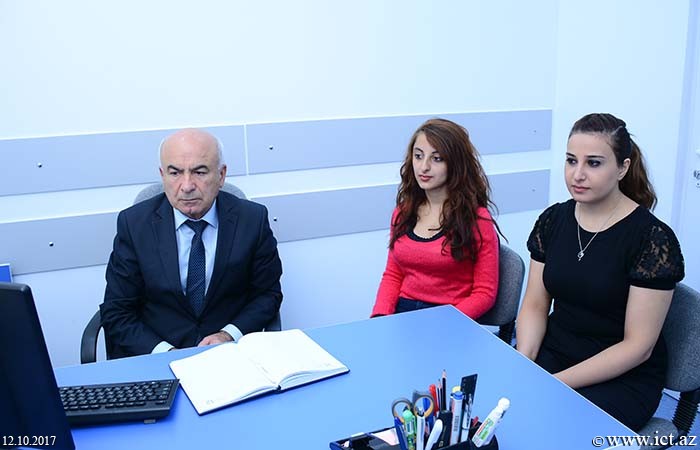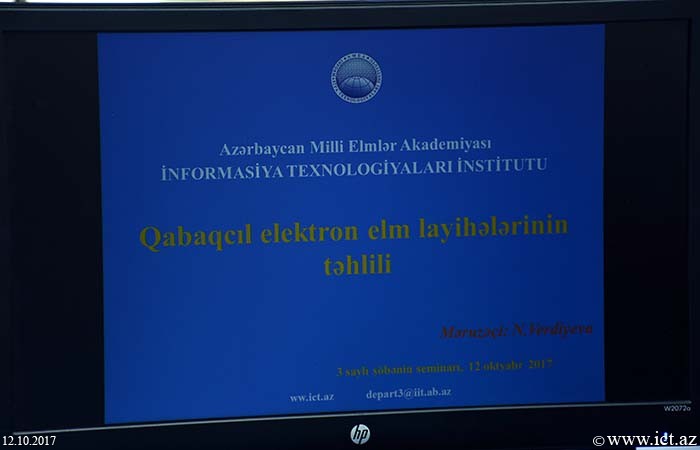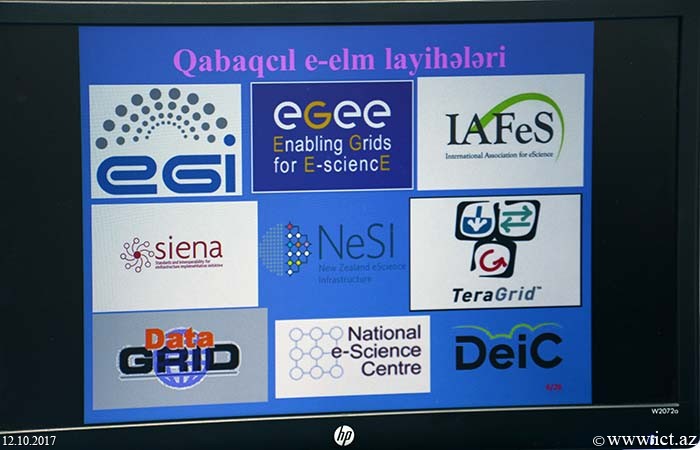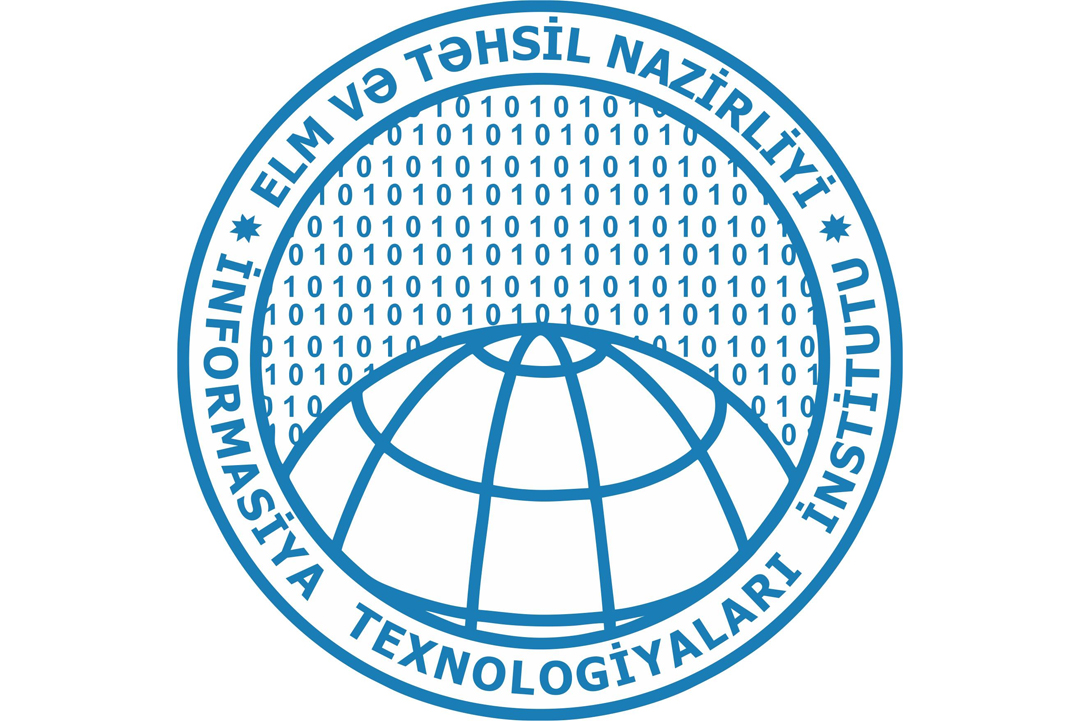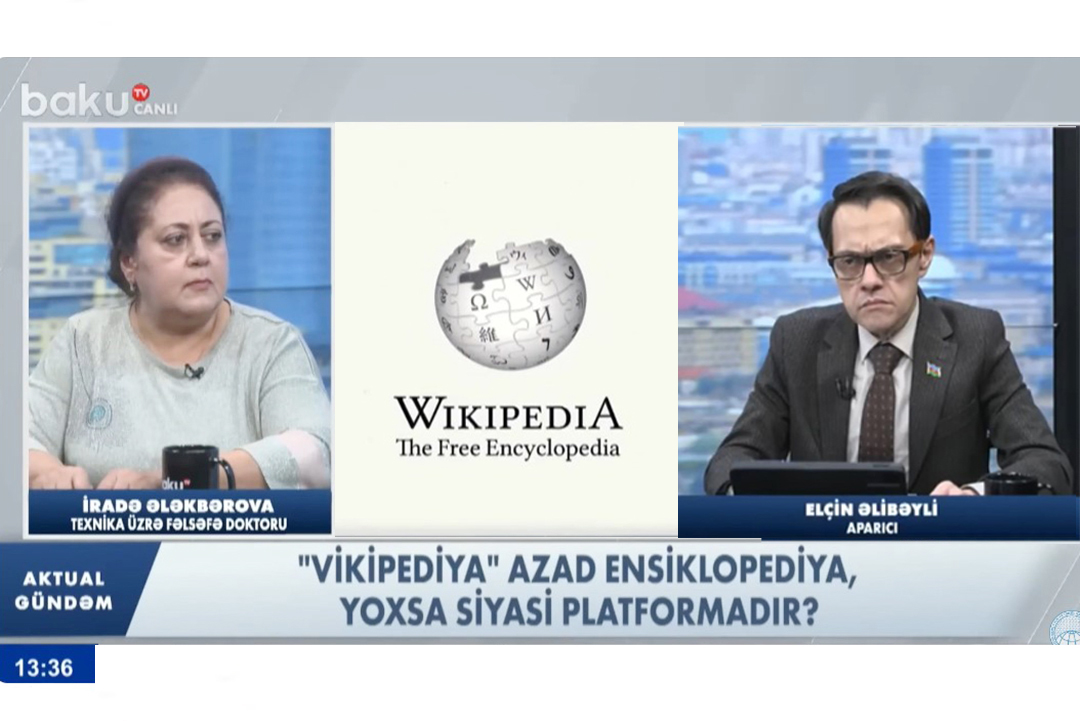NEWS
Advanced electronic science projects are analyzed
The next scientific seminar of Department № 3 was held at the Institute of Information Technology of ANAS. The colleague of department Nargiz Verdiyeva presented a report entitled "Analysis of advanced electronic science projects" by e-science, advanced e-science projects and others. gave information about. The speaker first spoke about the conventional classification of e-science projects and said there were national, regional, and international categories.
N. Verdiyeva said that a stronger infrastructure needed to support e-science than infrastructure that allows HTML readings to be read online. According to him, scientists need to easily access the computational resources and data stored in databases. Grid is an architecture that combines each of these and enables you to see this vision for e-science.
The lecturer gave information about the National Science Center of the United Kingdom (UK), National eScience Center. He also talked about the tasks of this national e-science centre. He noted that his computational science research and e-science applications create a two-way idea flow and mutual influence, provide technical infrastructure for e-science Scottish scholars to quickly learn and others.
Speaking about the European Grid Infrastructure (EGI), the reporter presented a scheme to describe his services. She said that there is a data centre federation that provides advanced computing services for research. The computing service is equipped with high-performance computing service of EGI.
The reporter noted that the main objective of the Support Action Plan, based on the SIENA Project research infrastructure projects, is to contribute to future e-infrastructure strategies by cooperating with the European Commission, Distributed Accounts Infrastructure Projects and Standard Development Agencies.
Noting that ''Plan-e"is a platform for national e-science centres in Europe, Verdiyeva said that he promotes innovative science in Europe and beyond, as a new way to accelerate discoveries. Strengthen the development of the platform, stability of the software, information exchange, reuse of data and computer codes, and so on. It is planned to.
She also talked about TeraGrid's goals, partners, New Zealand e-science infrastructure, "NeSi'' services, International Association E-science for and other projects.
In the end, the reporter said that e-science developed as an integral part of the building of information society. She noted that the complexity, importance and scope of the issues require integration of e-science projects.
© All rights reserved. Citing to www.ict.az is necessary upon using news

